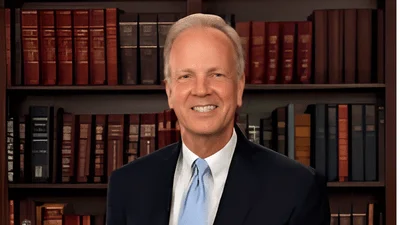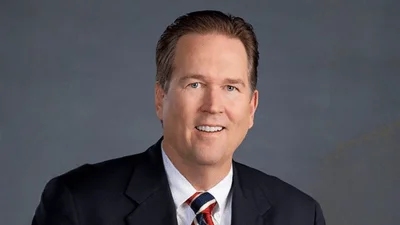House Appropriations Committee Chair and Labor, Health and Human Services, Education, and Related Agencies Subcommittee Chair Rosa DeLauro (D-CT-03) delivered the following remarks at the Subcommittee's hearing on Healthy Aging: Maximizing the Independence, Well-being, and Health of Older Adults:
I want to acknowledge and thank Ranking Member Tom Cole and all the subcommittee Members joining us for this hearing. And thank you to our witnesses for testifying before us today on this important topic. Welcome to our subcommittee:
• Dr. Martha Pelaez, Board Member, National Council on Aging and Evidence-Based Leadership Collaborative
• Patti Lyons, President & CEO, Senior Citizens, Inc
• Karen Orsi, Director, Oklahoma Mental Health and Aging Coalition; and
• Bob Blancato, National Coordinator, Elder Justice Coalition
I will introduce you all once again before your testimony, but we are so delighted that you could join us this morning to discuss what is an important issue around Healthy Aging.
I want to specifically recognize our colleague Congresswoman Lois Frankel for her interest in this critical topic. This is a Member-driven hearing and would not have been possible without her advocacy. As you well know, the concept of healthy aging encompasses so many things, but its breadth and complexity are exactly why we are all here today, to be able to talk about it.
This hearing is particularly important today because our country’s senior population is growing. According to the Census Bureau, the United States’ population of individuals over age 60 is projected to increase by 15.7 percent between 2019 and 2025 - an increase of nearly 12 million more people.
We wholeheartedly believe this is something to celebrate. The fact that the percentage of older adults in America is increasing means that people are living longer, that's good.
But it simultaneously highlights a need for renewed focus on how we can provide what kind of care and how we can provide that care to aging Americans. Our growing population of older adults simultaneously brings with it a growing population at increased risk for health issues and in need of specialized prevention and treatment services.
I am proud to be hosting the hearing today, during what is “Older Americans Month." Which is a time to celebrate the contributions that older Americans have had and continue to have on our country and acknowledge and recognize their unique needs. This month, and the hearing today, should serve to recommit this Committee to the health and prosperity of our seniors and to our moral and fundamental responsibility to support older adults in the tailored ways that they deserve and have earned.
I am proud that these values are already reflected in the funding that this Committee makes to support our seniors and their Healthy Aging through our Labor, Health and Human Services, Education, and Related Agencies bill and other measures.
Our bill funds the Department of Health and Human Services Administration for Community Living (ACL), including the Administration on Aging (AoA). And Through the ACL, we support and invest in state and local aging networks as they work with national organizations and committed advocates to support and empower older adults.
And little is more essential to supporting the needs of our seniors than ensuring they do not go hungry. In the recently passed fiscal year 2022 omnibus, we included $967 million for the Senior Nutrition program which helps older adults access nutritious meals and vital services to promote their health and wellbeing. We included over $900 million for senior nutrition through the American Rescue Plan and the COVID supplementals last year to ensure that low-income seniors received meals during the pandemic. The funds were critical to making sure thousands and thousands of seniors around our country did not go to sleep hungry.
Ms. Lyons, as you mention in your written testimony, without continued and sustained funding, more seniors will be at risk of being left hungry and increasingly isolated. Which is why I am thankful that you are also joining us today in your role as Board Chair of Meals on Wheels America. It's a program that is a lifeline for seniors. It is not just about delivering a warm meal, but about making sure that older Americans can live with dignity. I have gone door to door with Meals on Wheels and know the power that programs like these can have to connect older Americans with essential services, encouraging independence, to provide safety checks, and to make our seniors feels less isolated.
And keeping our seniors safe and healthy must include addressing preventable injuries. Within ACL, millions of dollars are used for fall prevention programs and grants that have been proven to reduce the number of falls and related injuries that older adults face. And that's the issue that Congresswoman Frankel highlighed when she asked for this hearing. In addition, this subcommittee funds the Centers for Disease Control and Prevention (CDC). CDC programs prevent elder falls and chronic diseases that directly impact the health of seniors.
Particularly important to the topic of this hearing are Elder Justice programs funded within ACL. Mr. Blancato, as you mention in your testimony, ten percent of all older adults in this country fall victim to elder abuse. And those most vulnerable and historically underserved experience abuse at disproportionate rates. The funding we invest in Elder Justice programs within ACL are used to develop the structure and systems that encourage justice for older Americans and that prevent abuse and provide protection to those who need it most.
Nothing is perhaps more critical to our conversation on “Healthy Aging" than the concern for the specific physical and mental health needs of our seniors. Again within ACL, this subcommittee funds the NIH’s National Institute on Aging. We held a hearing yesterday on the fiscal year 2023 budget with the NIH. Again, Ms. Frankel asked a question about research on the health of older Americans, the issue of falls etc. We were told that there is promising research to prevent and treat Alzheimer’s and other diseases that specifically impact seniors. But I think that we have to try to focus and move in the direction of more research as it has to do with the causes of falls, the nature about women who fall more than men do apparantly. And so get to the heart of what this issue is all about. I am so proud of what this Subcommittee has done to fund the Substance Abuse and Mental Health Services Administration (SAMHSA). And this is on a bipartisan basis I might add. In fiscal year 2022, we did $6.5 billion to the agency, including resources that support older adults facing mental and substance use disorders.
Mental health issues plague seniors, which has been a growing concern for years. And the social isolation and economic pressures caused by the COVID-19 pandemic have only exacerbated already existing problems and created new barriers to reaching seniors when they are most in need. The pandemic highlighted the unique ways mental health issues compound with physical ones and the needs of older people not just in moments when they may be experiencing personal struggle, but all of the time.
Because of the unique challenges many seniors have faced over the past two years, Congressional Democrats and the Biden Administration moved quickly to deliver emergency funding that helped those needs. With $1.4 billion to implement the Older Americans Act and more through emergency supplemental bills. But it is about ongoing and sustainoing support that we need.
Four subject matters that we will talk about with our experts: falls prevention, senior nutrition, mental health, and elder justice. These issues of course intersect, and the hearing is a crucial step as we try to build on past successes and learn more about what we can do in these areas. We can't talk about all the issues that are facing older Americans, but we can talk about these as well. While we can't address everything today, I am proud that we are starting the conversation here today.
Looking forward to hearing from our witnesses today. Thank you in advance for the visibility they are giving these issues and your understanding how these programs interact and how they support the “whole" of a person who is aging, and the advice that you can give to us on the steps that we can take moving forward.
Source: U.S. Department of HCA







